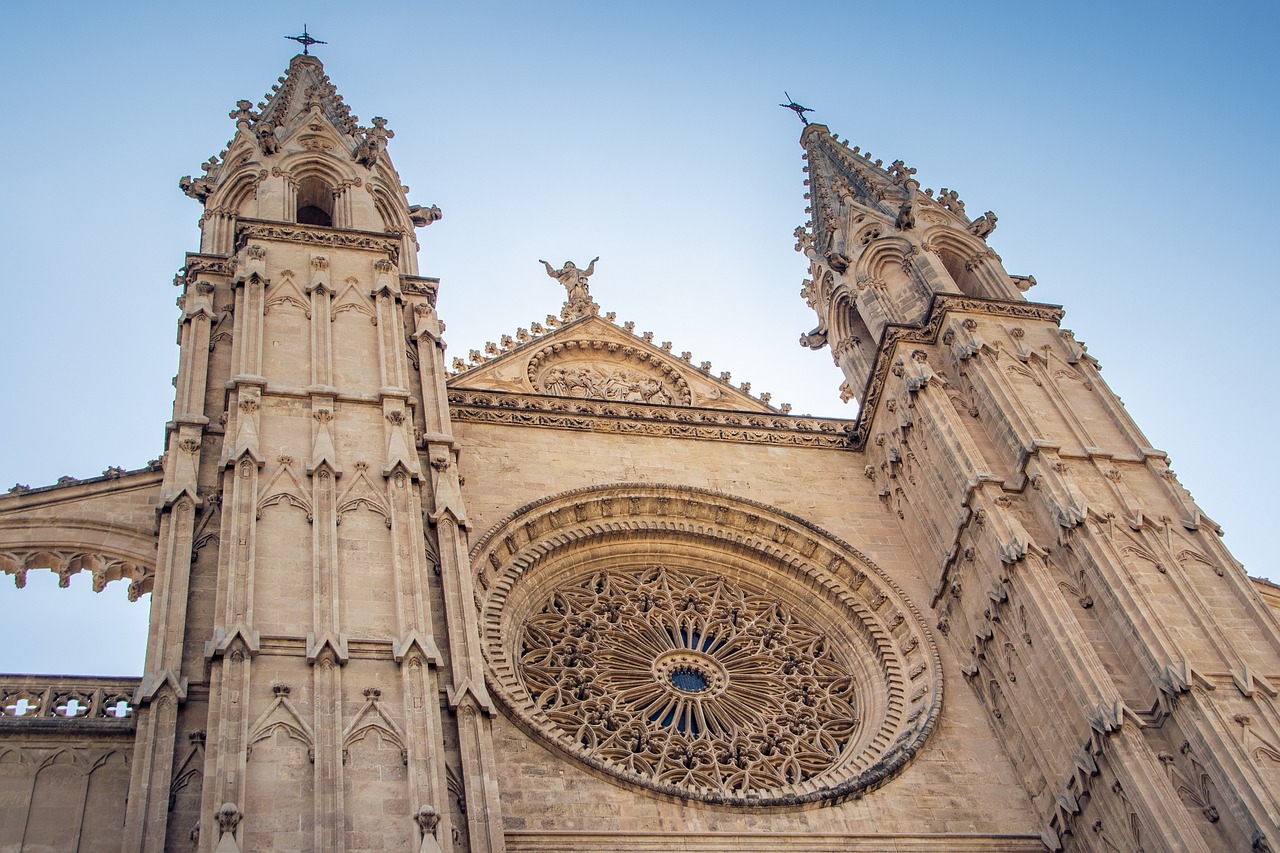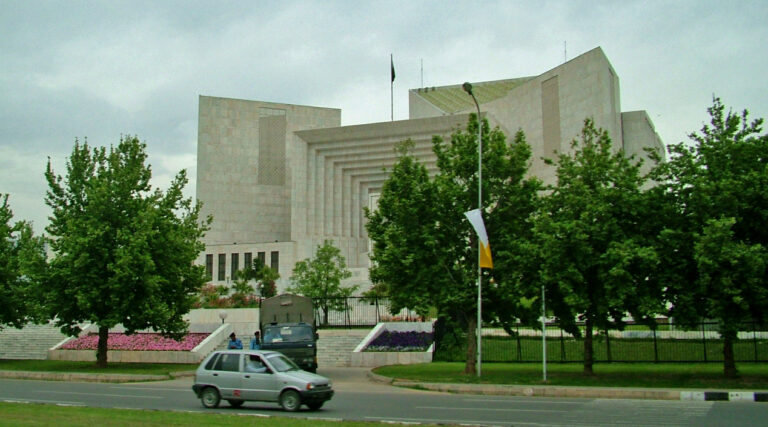
Limited Dominion in Early Modern Political Theologies
Elisabeth Rain Kincaid and Matthew P. Cavedon
Image by David Vives from Pixabay.
American politics have taken increasingly surprising turns in recent years. One of the more surprising of these has been the recovery of a nineteenth-century Catholic political theory known as integralism. Its proponents reject secular governance and free institutions (lower-case “l” liberalism) in favor of “political rule that must order man to his” supernatural destiny. In some ways, this theory’s allure is understandable: democracy has difficulty maintaining the values that sustain it and excessive secularism does need to open its windows to transcendent values. However, we are troubled by the possibility of theology being used to underwrite authoritarianism. In this article, we aim to provide a helpful look backwards at this political temptation’s roots, and Christian alternatives to it, from early modernity.
Integralism’s Temptation to Dictatorship
Contemporary integralists come in different varieties, ranging from hard to soft, but arguably their most prominent intellectual figure is Harvard law professor Adrian Vermeule. Vermeule is a student of early twentieth-century German jurist Carl Schmitt—which explains Vermeule’s sympathetic take on dictatorship. Following the First World War, Schmitt adapted the classical Roman idea of the “commissarial dictator”: an absolute sovereign ruling “as a temporary institution intended to preserve the fundamental constitutional order.” Schmitt interpreted the postwar German (Weimar Republic) Constitution to allow for the president to respond to emergencies by temporarily suspending fundamental rights and consolidating all governmental power. In 1933, Schmitt endorsed the Nazi measure allowing the government to change laws without following the normal legislative process, which was justified with reference to Germany’s “distress.” Schmitt soon became the Third Reich’s leading legal theorist.
Historical theology was never far from Schmitt’s mind. Originally working within a Catholic framework, Schmitt came to reject the Church’s social teachings in favor of radical secularism. However, he also believed that modern concepts of political sovereignty “are secularized theological concepts.” In particular, “the sovereign is the one who decides on the state of exception”—that is, when to suspend the legal system.
Schmitt’s thought has found support throughout the post-World War II era from left-wing and right-wing skeptics of liberal democracy. All the way back in 2009, years before his conversion to Catholicism and endorsement of integralism, Vermeule wrote that Schmitt was right that the ordinary rule of law cannot handle some emergencies. Two years later, he again mentioned Schmitt’s view that a commissarial dictator “may violate certain constitutional rules in order to protect and conserve the overall structure of the constitutional order.” In 2018, Vermeule—by then an integralist—declared the distinction between persuasion and coercion “so fragile as to be nearly useless,” urging democracy’s critics to find “a strategic position from which to sear the liberal faith with hot irons, to defeat and capture the hearts and minds of liberal agents, to take over the institutions of the old order.”
Vermeule’s 2022 book Common Good Constitutionalism comments positively on “the tradition of the carefully cabined Roman model of dictatorship,” calling it “restorative and, in a sense, fundamentally conservative,” able “to heal and promote the ordinary and healthy functioning” of the political system. He continues by observing that “at the highest level of the polity . . . there should exist a public authority with the jurisdiction to act, under exceptional circumstances.” The common good requires “overriding if necessary the views of any subordinate jurisdiction.”
What role does the Church play in all this? In a 2018 essay, Vermeule argues that executive bureaucracies “long predate liberalism,” lack any “necessary connection of principle to liberalism,” and “will certainly survive liberalism’s eventual disappearance.” He therefore “hopes for eventual integration” with Catholicism “effected from within institutions currently extant in liberal-democratic orders.” These efforts should focus on bureaucratic agencies rather than legislative bodies. Vermeule describes a school of Catholic social thought he evidently has sympathy for as working “within a liberal order towards the long-term goal, not of reaching a stable accommodation with liberalism, even in a baptized form, but rather with a view to eventually superseding it altogether.”
Vermeule’s recovery of Schmitt for integralist purposes echoes perspectives, and debates, about the nature of political authority in earlier centuries. However, we argue that he does not represent the mainstream of either Protestant or Catholic theological thought. To that end, we now consider early modern Christian evaluations of the nation-state.
Medieval Christians and the first Lutherans on the need for Dominion
While early modern Christians obviously did not share our concept of a participatory democracy, they did share our awareness about the necessity of some form of sovereign authority, as well as of the danger of potential overreach. Almost all agreed that laws were to some degree necessary for a functioning society and that law required enforcement power. Much of their discussion centered around the concept of “dominion,” a somewhat vague Latin term which refers to the authority the ruler has over his subjects. In Gratian’s famous Decretals, the dominion of kings is ordered under the dominion of the Church by the “law of Christ,” which has “both given us power and granted us dominion far more perfect than [the king’s] dominion.” This statement harmonized with the traditional reading of Romans 13, which both upholds the authority of earthly powers and limits it by divine power. In addition, it reflected an early Christian awareness of two distinct types of political authority—one more powerful than the other.
However, the question inevitably arose as to what these overlapping dominions meant. The terms of the debate as Gratian understood them were set for Western Christian theology in the City of God. There, Saint Augustine describes God’s grant of dominion to earthly rulers according to divine providence to make laws which enforced earthly peace and justice. “The divine utterance is clear on this matter; for the Wisdom of God thus speaks: By me kings reign, and tyrants possess the land.” (Proverbs 8:15) However, this power is not total; it does not extend either to tyrants or to those who attempt to limit the “worship of the one supreme and true God.” In addition, Saint Augustine describes the Church as possessing a separate authority, both spiritual and moral, over the citizens of the City of God, which extends beyond that possessed by any earthly kings.
Saint Thomas Aquinas carried on this tradition of both acknowledging the divine nature of human authority and describing its limits. According to Aquinas, political society exists to serve natural human ends. It exists because it is good for securing the provisions of life and for training people to live virtuously. This reading of Aquinas is not without some controversy, but we believe that it aligns with the main reception of him in the Christian tradition. It is the nature of government to advance the common good of its subjects—that combination of material sufficiency and social life under laws by which “man is reduced to justice.” Justice, then, requires government. While the Church had ultimate authority over its members in this theological tradition, government was always seen as also having its own integrity in discerning the appropriate way to pursue natural human goods.
However, this view was sometimes challenged, resulting in a more definitive split between the Church’s power and that of states. Throughout the early middle ages, various quasi-apocalyptic movements arose which emphasized either the rejection of all forms of dominion or the need for ecclesial repentance in preparation for the end times. One example of this is the Lollard movement, developing from John Wycliffe’s rejection of the Church’s authority to limit government power, calling instead for a focus on mass ecclesial repentance and an abandonment of the Church’s involvement in the secular sphere. Wycliffe’s ideas undoubtedly influenced the Protestant Reformers Martin Luther and Philip Melanchthon, who offered a theology of dominion which shared Wycliffe’s rejection of any type of ecclesial check on civic power. Rather than ground this expansion of civic power in anticipation of the apocalypse, Luther and Melanchthon theorized a scriptural grounding for secular authority in God’s proper ordering of the earth. Luther famously described the necessity of the power of “civil law and the sword,” which he argued was “in the world by God’s will and ordinance.” In fact, Luther argued that the “the law of this temporal sword has existed from the beginning of the world.” He demonstrated this based on Cain’s fear of punishment after the murder of Abel. “He would not have had this fear if he had not seen and heard from Adam that murderers are to be slain.” While Luther focused on the theological grounding for punitive power of the state in God’s command, Melanchthon described God’s involvement and support for good order, which is God’s work, “to the extent it is maintained, it is maintained through God daily. God always gives some wise, just, true judges and rulers, so that the devil may not ruin the entire world at once, for God wills to sustain this world for a certain time, for the sake of the chosen church, and for no other reason.” God wants Christians to accept that the office of worldly authority is of God’s creation:
“He wants us to know and honor his work and activity so that our hearts may be obedient in this order not only to men but to God.”
Although the separation between secular authority and the moderating influence of the Church’s limits points towards some of the later Schmittian developments, neither Melanchthon nor Luther would endorse the totalizing dominion of the dictatorial state.
Perhaps the closest early Protestant analog to integralism, although far from Schmitt’s doctrines, is the political theology of the Anglican divine Richard Hooker. Hooker sought to support the Elizabethan Settlement by arguing against both Reformed and Catholic interlocutors that the proper structure for both the Church and the civil society in England had been achieved. In Hooker’s theory of the sacred canopy, the Parliament of England served as both the government of the secular state and the synod of the laity, with the king serving as the head of both. However, as Esther Reed has convincingly argued, Hooker’s understanding of the law enacted by this Parliament depends upon his “third writing” of the natural law. In this “third writing,” Hooker presents a theory of the natural law which has not been interpreted in a coercive or voluntarist fashion, but rather discerned communally and discursively among all the levels of government.
Spanish Catholic Theories of Human Nature and Limited Dominion
Separately from Protestant discourses, the Augustinian-Thomist tradition of political philosophy was carried on by other early modern thinkers. Three Catholic thinkers in Spain understood political dominion as inherently limited, and due to God’s providence, but saw it as arising through the mediation of natural law and human decisions. For the jurist Fernando Vázquez de Menchaca (1512–1569), humanity’s fall from grace made it necessary for people to exercise their natural right to self-defense. Initially, political power was only civil law, established to facilitate self-defense. In time, political power acquired the status of human right. In an innocent world, political power never would have been needed, and Vázquez decries its necessity, writing, “To be under the dominion of a lord is not a good, but is rather the most disagreeable of all things.” It is akin to slavery and a lamentable consequence of sin. However, sovereignty does not come directly from God or even nature. Communities perceive political authority to be beneficial, so the people confer it upon princes through laws that both empower and restrain him.
Vázquez defined a tyrant as any prince who uses public goods, and especially his power, for his own benefit instead of the common good. The tyrant also exceeds the power that the people grant him. He loses all of his rights of office and the people can simply choose to desert and disobey him. The people can also appeal to higher powers—the pope and the emperor—for redress of their grievances. If these efforts do not succeed, then citizens may do what they deem necessary to resist the prince. They can even kill the prince if he uses violence against them. Foreign intervention, too, is welcome: “it is a beautiful and magnificent thing for a prince to take up arms to avenge all of the people unjustly oppressed by the cruelty of a tyrant.”
The Jesuit theologian Francisco Suárez (1548–1617) was also a major theorist of natural law. He was such a strong opponent of royal absolutism that his work was burned in the cemetery of London’s St. Paul’s Cathedral on the order of King James I and in Paris on command of King Louis XIII. Like Vázquez, Suárez understood proper dominion as coming from God to the human community. God would not be a good father if he had not given humanity the ability to “resolve all cases that present themselves as being in the interest and benefit of everyone.” God wills the good of people and endows them with the rational power to seek what will bring them happiness.
The human community “represents God on earth.” This means people can change some aspects of their original historical state and establish lawgiving communities which govern in alignment with natural law and rights. Such agreements are made by people using reason in society in response to necessities. Instances of this human right to establish permissive natural law include the ability to make war, the fixing of national borders, and the division of property. While these do not have their historical origins in nature, natural reason determines that they are natural and good because of the needs of society. Suárez believed that many of the exigencies causing the need for legal institutions arose in the distant past as pride and depravity took their toll on social life in the wake of humanity’s fall into sin. Suárez justified these deviations from the natural conditions of liberty, equality, and peace as necessary for society among flawed people.
What establishes political life is not violent usurpation or a direct divine grant of power, but people acting together in facing human imperfection in a fallen world. Political power being necessary for salvation, it is instilled by God in human nature communally, to be actualized through a compact among society. This compact is limited by the need for the government to pursue the common good and by rights retained by individuals.
As a result, Suárez denied that any obligation exists to obey laws that are unjust, excessively harsh, unduly burdensome—or even rejected by a majority of the people. Like Vázquez, he considered any prince who makes war on his subjects a usurper and believed he could be killed. Suárez recognizes three other cases of justified tyrannicide, too. Any individual could kill the prince in direct self-defense, as no prince has the right to threaten the lives of his subjects. The pope could authorize the people to kill the prince. Or, the people could depose the prince after public deliberation, as the prince must rule “politically, not tyrannically.” Suárez believed that God grants humanity dominion communally, to be exercised for the good of all. Political power is not a separate right given to someone who roosts above the society, and corrupted dominion can be challenged.
Suárez’s fellow Jesuit theologian Juan de Mariana (1536–1624) was even more radically anti-absolutist, writing an infamous defense of tyrannicide. His work was timely—right up until it was not. In 1589, the French king Henry III was fatally stabbed by a fanatical Dominican monk, an act lauded by the French nobility and the Papacy. In the aftermath, Mariana’s work was published “without the slightest comment or criticism.” Twelve years later, the far more popular King Henry IV was assassinated and Mariana’s book was “burned in public by the hangman.” Mariana remained a controversial figure for many years.
His radical conclusions were built upon a fairly conventional Catholic consideration of dominion. Mariana imagined that originally, people were able to live in peace and plenty, ordered to perfectly love God and their fellows. Sin introduced suffering and division into the world but did not change the fact that human nature is ordered to love. In order to induce people to feel their need to love and be loved by others, God permits people to experience needs that they cannot satisfy by themselves. As it was for Suárez, government is a response to exigencies faced by people in society. God permits human reason to continue to recognize human nature and to perceive that life under a common set of laws would foster reciprocal love.
Unlike Suárez, Mariana does not directly trace dominion through natural reason. The prince has dignity and power because society needs defense against danger and injustice. Any limitations on pursuing these ends would be to society’s detriment. However, Mariana is not the predecessor of Schmitt, since in Mariana’s view, reason, law, and the people should rule and written law should replace mere fiat. Only with many people participating in public life could the government gather the information necessary to meet common needs, and an active public could check tyranny. “If there is no better thing than the royal dignity when it is subjected to laws, neither is there anything worse than when it is unchecked in all things.” Mariana believed that “the authority of the community, when all have reached a common accord, is greater than that of the prince,” and that popular legislatures should exercise lawmaking power.
Mariana rejected absolutism, writing that “legitimate princes must never work in a way that seems to be the exercise of absolute sovereignty disconnected from the law,” including customary laws enacted by the community without formal legislation. This begins Mariana’s discussion of tyrannicide: a prince can be killed for refusing to obey the law. “The tyrant is like a fierce and inhuman beast,” and it is the duty of people who can do so to kill him. Abuses against the fatherland should be tolerated no more than those against one’s actual parents. A once-legitimate ruler can be killed for maintaining power through corrupt and perverse means. Tyrannicide was not Mariana’s first resort. A public assembly ought to convene, refuse to continue to recognize the tyrant, and take up arms for self-defense. However, should the king fight back rather than abdicate, he is making war on his people and can be killed. Whenever the tyrant makes political assembly impossible, the people should risk their lives to defy him for the sake of their country. Exterminating “infamous monsters from human society” is nothing less than “glorious” for Mariana.
Dominion and a Christian Politics for Today
It is ironic to see Christians like Vermeule exalting the possibility of dictatorship. Medieval thinkers and early Protestants questioned whether political dominion was even necessary. Early modern Spanish Catholics rejected rising absolutism, insisting on the rule of law and accepting even tyrannicide against those who war against their own people. Schmitt rationalized his support for dictatorship only by rejecting the Catholic Church’s social teachings in favor of hard political secularism. Vermeule, though, wants to go the opposite route, embracing the possibility of dictatorship as a result of his newfound Catholic take on politics. What a shame for him to sideline the work of great Christian thinkers in favor of the politics of those who burned their books. ♦

Elisabeth Rain Kincaid is Director of the Institute for Faith and Learning and Associate Professor of Ethics, Faith, and Culture at Baylor University. She is the author of Law from Below: How the Thought of Francisco Suarez, SJ Can Renew Contemporary Legal Engagement (2024).

Matthew P. Cavedon is the Robert Pool Fellow in Law and Religion at the Emory University School of Law. He is the author of From the Pope’s Hand to Indigenous Lands: Alexander VI in Spanish Imperialism (2024). Kincaid and Cavedon are Research Fellows supported by the Center for Religion, Culture & Democracy.
Recommended Citation
Kincaid, Elizabeth Rain and Matthew P. Cavedon. “Limited Dominion in Early Modern Political Theologies.” Canopy Forum, January 23, 2025. https://canopyforum.org/2025/01/23/limited-dominion-in-early-modern-political-theologies/.
Recent Posts










